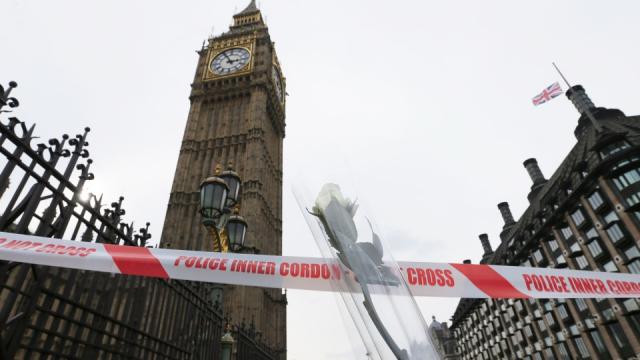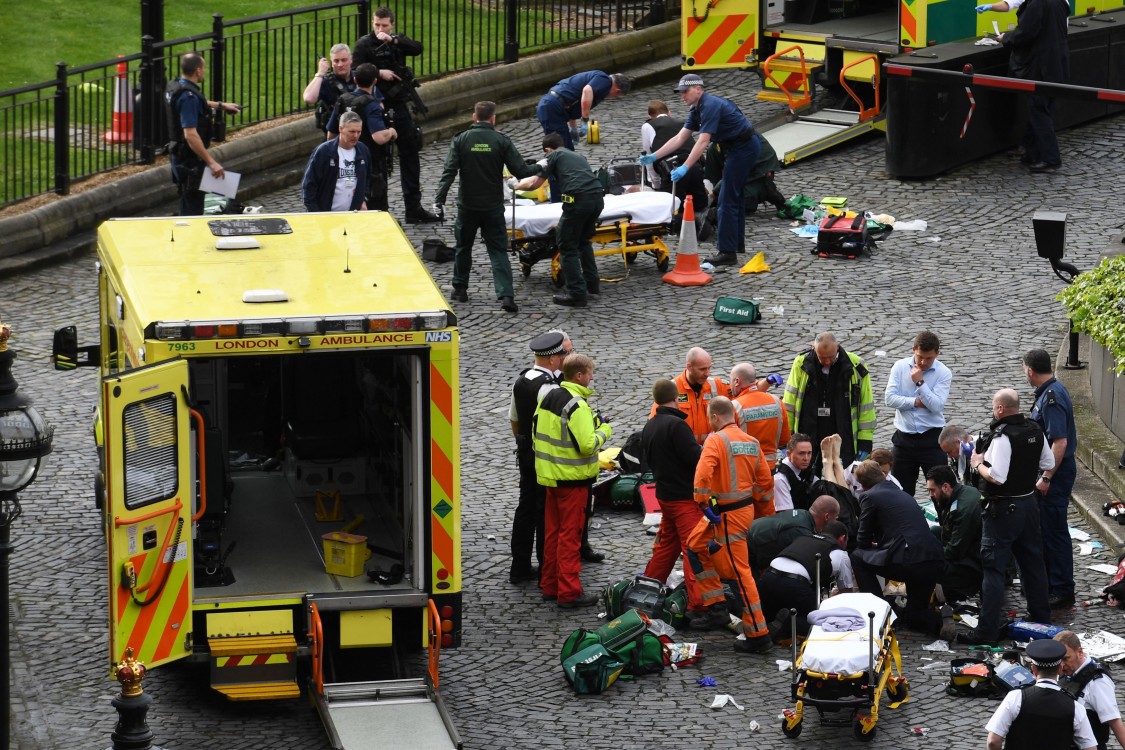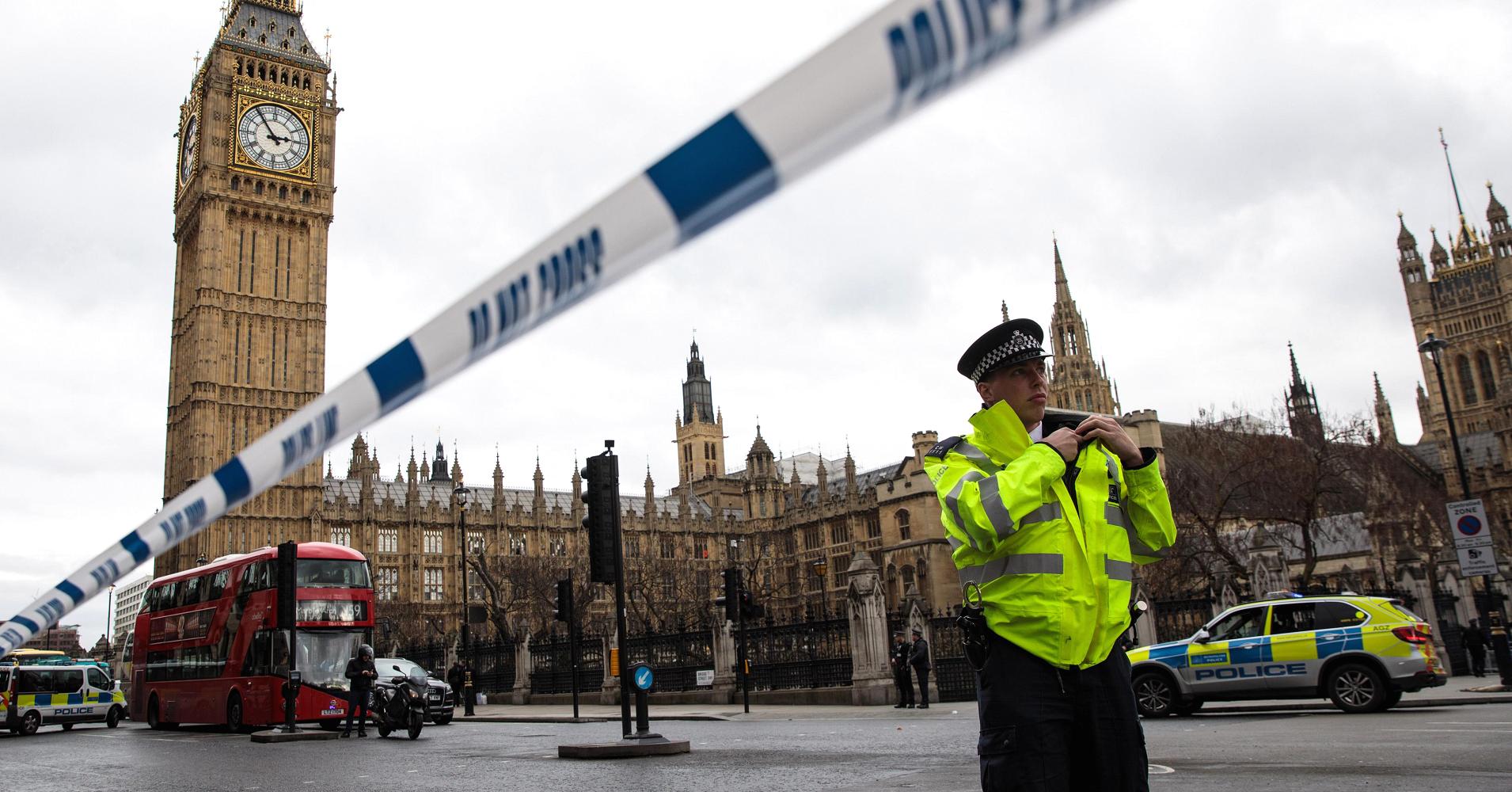
Last Wednesday an armed “terrorist” killed four people near the Houses of Parliament. A few days before, Prime Minister Theresa May announced that she plans to trigger Brexit – the country’s departure from the European Union – by March 29. It might seem a bit tenuous to link Brexit with the terrorist attack, but on further consideration it makes some sense. Today’s United Kingdom is a place in genuine turmoil, with racial, religious and nationalistic tensions emerging ferociously in all kinds of ways. The country's decision to leave the E.U., and the threat of terrorist violence like the killings last week, are intimately connected.
Marcel, a non-British sales assistant who has lived in East London for six years, told Occupy.com, "England has always been Euro-sceptical to some extent. My biggest surprise was how David Cameron interpreted the results, as if everyone who voted ‘Leave’ was endorsing racist politics.” Marcel, who declined to give his last name, said he is already feeling the harsh effects of the Brexit referendum.
“I lost my job in January and the job center refused to give me any Jobseeker’s Allowance. You can now only receive JSA if you are about to start a new job. We are living in a country with different rights for different citizens.”
Like many, he is concerned that the terms of the Brexit deal have been hastily put together and that its implications for citizens remain unclear. “Nobody knows what the deal is going to be about. There are 3 million E.U. citizens in the U.K. and we keep on hearing very contradictory information. [London Mayor] Sadiq Khan just posted a campaign saying that London is ‘open’ to E.U. workers. But we are waiting for concrete guarantees," he added.
"It’s a colossal responsibility to reshape England like this for years to come, and it's undemocratic to give this responsibility to a prime minister who wasn’t elected by the people. When Brexit happens, we could end up creating a massive divide between the Scottish and the rest of the U.K. and spreading the risk of a new wave of terrorism.”
Anna, a clothing designer who has lived in the U.K. for 20 years, said she's "not really surprised by the ‘Leave’ vote, as almost all the press ran a ‘Vote leave, we'll be so much better off’ campaign.'” Still, she said she felt the “Leave” campaign was based on falsehoods.
“If somebody who proposes to fix your house told as many lies as the Leave campaign did to get the job, you would sue him for all he's got. Yet Brexit is supposed to be a done thing, and nobody is meant to complain? The mind boggles," Anna, who likewise declined to give her last name, told Occupy.com.
Anna said she doesn’t plan to apply for citizenship if the Brexit deal requires it. “I'm not bending over backwards to be in a country which doesn't want me,” she said. “If the eviction notice comes, I'll leave. I don't think this government will be taken seriously if they keep expressing the idea that the resident Europeans are their bargaining chips. The prime minister is hell-bent on pulling this through, whatever the consequences. We'll see Scottish (and Northern Irish) independence [as] unavoidable results. It won't be necessarily a better life for either.”
Following last week's terror attack at Parliament, however, the mood around the U.K. was rather different.
“Shortly before a 3pm meeting, a couple of people said there was an incident at Parliament – about 10 minutes later, we had a message over the building's PA system reporting the incident, and about 20 minutes later, we had notification the building was in lockdown,” Railway Consultant Peter Hicks told Occupy.com. “When I left the building about 4.45pm, there was more police activity than I'd ever seen before. I didn't feel frightened, just apprehensive.”
A prominent left-wing campaign group, 38 Degrees, issued a statement the day after the attack, saying: “It’s hard to know how to respond at times like this. It would be understandable if you are sad, shocked or even angry. But maybe you’re also feeling a bit proud?”
The group invoked a spirit of unity, a sense of solidarity and of people pulling together in what was already very likely – from the evidence gathered so far – a small-minded, callous attack motivated by religious fundamentalism.
“We still don’t know all the details of yesterday’s tragic events. But we do know we have a choice about what we do next. We could give in to fear and hate. Or we could choose to celebrate the courage and everyday goodness that we saw as well… When terrible things happen it can be easy to lose sight of what we have in common. We’ve got the opportunity to show that we are not afraid and will keep on working a for a better world.”
Brexit – ostensibly a foregone conclusion for the U.K. – could spell disaster for the country in a range of social and financial ways. But in a country that has just proven that diversity is so passionately celebrated, and where people show strong and impressive displays of solidarity in times of crisis, some are perhaps seeing hope that Britain may rethink the vote proceed with a clearer, fairer dialogue on the issue.
3 WAYS TO SHOW YOUR SUPPORT
- Log in to post comments













